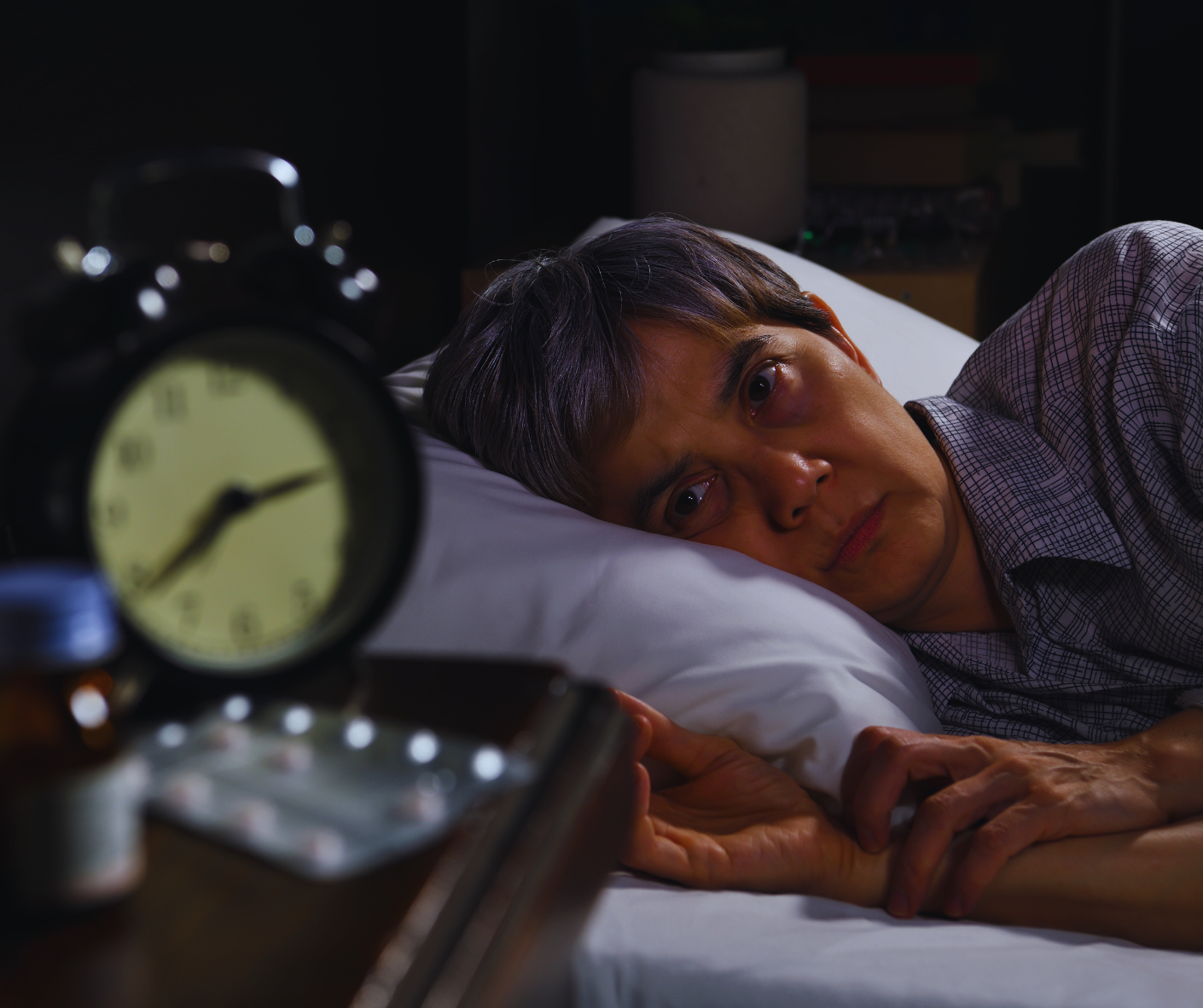Insomnia

Understanding Insomnia: Causes, Symptoms, and Treatments
Introduction
Insomnia is a common sleep disorder that makes it difficult to fall asleep, stay asleep, or get restful sleep. It can lead to daytime fatigue, irritability, and a host of other issues that affect overall health and quality of life. Understanding the causes, symptoms, and treatment options is crucial for managing insomnia effectively.
Causes of Insomnia
- Psychological Causes:
- Stress: Work-related stress, financial concerns, or personal issues can keep the mind active at night, making it hard to fall asleep.
- Anxiety and Depression: Mental health conditions such as anxiety and depression often disrupt sleep patterns, leading to insomnia.
- Trauma: Post-traumatic stress disorder (PTSD) and other forms of trauma can cause chronic insomnia.
- Lifestyle Causes:
- Irregular Sleep Schedule: Inconsistent sleep patterns, such as going to bed at different times each night, can disrupt the body’s internal clock.
- Poor Sleep Habits: Activities like using electronic devices before bed, napping during the day, or consuming caffeine late in the day can interfere with sleep.
- Substance Use: The use of alcohol, nicotine, and certain medications can disrupt sleep and contribute to insomnia.
- Medical Causes:
- Chronic Pain: Conditions like arthritis, fibromyalgia, or other sources of chronic pain can make it difficult to sleep.
- Hormonal Changes: Hormonal fluctuations, such as those occurring during menopause, pregnancy, or menstrual cycles, can cause insomnia.
- Sleep Disorders: Conditions such as sleep apnea or restless legs syndrome can lead to difficulty staying asleep.
- Environmental Causes:
- Noise: Living in a noisy environment can make it hard to fall asleep or stay asleep.
- Light: Exposure to light, especially blue light from screens, can interfere with the production of melatonin, the sleep hormone.
- Temperature: An uncomfortable sleep environment, either too hot or too cold, can cause insomnia.
Symptoms of Insomnia
- Difficulty falling asleep at night
- Waking up frequently during the night
- Waking up too early and not being able to go back to sleep
- Daytime fatigue or sleepiness
- Irritability, depression, or anxiety
- Difficulty concentrating or focusing
- Increased errors or accidents
Home Remedies for Insomnia
- Establish a Regular Sleep Schedule:
- Go to bed and wake up at the same time every day, even on weekends, to help regulate your body’s internal clock.
- Create a Relaxing Bedtime Routine:
- Engage in calming activities before bed, such as reading, taking a warm bath, or practicing relaxation techniques like deep breathing or meditation.
- Limit Exposure to Screens:
- Avoid using electronic devices at least an hour before bed. The blue light emitted from screens can interfere with melatonin production.
- Limit Caffeine and Alcohol:
- Avoid consuming caffeine or alcohol in the late afternoon and evening, as they can disrupt your sleep cycle.
- Make Your Sleep Environment Comfortable:
- Ensure your bedroom is dark, quiet, and cool. Consider using earplugs, an eye mask, or a white noise machine if needed.
- Exercise Regularly:
- Engage in physical activity during the day, but avoid vigorous exercise close to bedtime, as it can interfere with your ability to fall asleep.
- Mind Your Diet:
- Avoid heavy or large meals before bedtime. If you’re hungry, opt for a light snack that includes sleep-promoting foods like bananas or yogurt.
Clinical Treatments for Insomnia
- Cognitive Behavioral Therapy for Insomnia (CBT-I):
- CBT-I is a structured program that helps individuals identify and change thoughts and behaviors that contribute to insomnia. It is considered one of the most effective treatments for chronic insomnia.
- Medications:
- Prescription Sleep Aids: Medications such as benzodiazepines, non-benzodiazepine hypnotics, or melatonin receptor agonists may be prescribed for short-term use.
- Over-the-Counter Sleep Aids: OTC options, including antihistamines or melatonin supplements, can be used, but they are not recommended for long-term use.
- Addressing Underlying Conditions:
- Treating any underlying medical or psychological conditions, such as sleep apnea, depression, or chronic pain, can improve sleep quality.
- Relaxation Techniques:
- Techniques such as progressive muscle relaxation, guided imagery, and biofeedback can help reduce stress and promote sleep.
- Sleep Restriction Therapy:
- This technique involves limiting the time spent in bed to match the amount of sleep you’re actually getting, gradually increasing the time as sleep improves.
- Light Therapy:
- Exposure to bright light during the day, especially in the morning, can help regulate the sleep-wake cycle, making it easier to fall asleep at night.
Clinical Treatments for Insomnia
For insomnia, the therapies offered by Earl Claytont Wellness Centre that are most likely to help improve sleep quality and alleviate sleep disturbances are:
- PEMF (Pulsed Electromagnetic Field Therapy):
- PEMF therapy can help regulate the nervous system, reduce anxiety, and promote relaxation, making it effective for improving sleep patterns and addressing insomnia.
- Full Spectrum Infrared Sauna:
- Infrared saunas promote relaxation and reduce stress, which can be highly beneficial for those struggling with insomnia. The warmth and calming effects can help prepare the body for sleep.
- NAD+ Therapy:
- NAD+ therapy may help improve sleep by supporting overall brain health and reducing stress. It enhances cellular repair and energy production, which can lead to better sleep quality over time.
- Vitamin B Complex:
- B vitamins, particularly B6, play a role in the production of neurotransmitters like serotonin, which regulate mood and sleep. A B Complex supplement can support better sleep by helping balance these chemicals.
These therapies are most effective in managing and improving insomnia by promoting relaxation, reducing stress, and supporting the body's natural sleep-wake cycles.
Get your appointment for Free Medical Consultation by clicking the "Book Now" below for us to know which treatment is best for you.
When to Seek Medical Attention
- If insomnia persists for more than a few weeks or is accompanied by severe symptoms such as excessive daytime sleepiness, mood changes, or problems functioning during the day, it’s important to seek medical advice. Chronic insomnia can have serious health consequences if left untreated.
Conclusion
Insomnia can be a frustrating and debilitating condition, but it is manageable with the right approach. By understanding the causes and symptoms of insomnia, individuals can take steps to improve their sleep through home remedies, lifestyle changes, and, if necessary, clinical treatments. If insomnia persists, consulting a healthcare provider is essential to identify and address any underlying issues.

